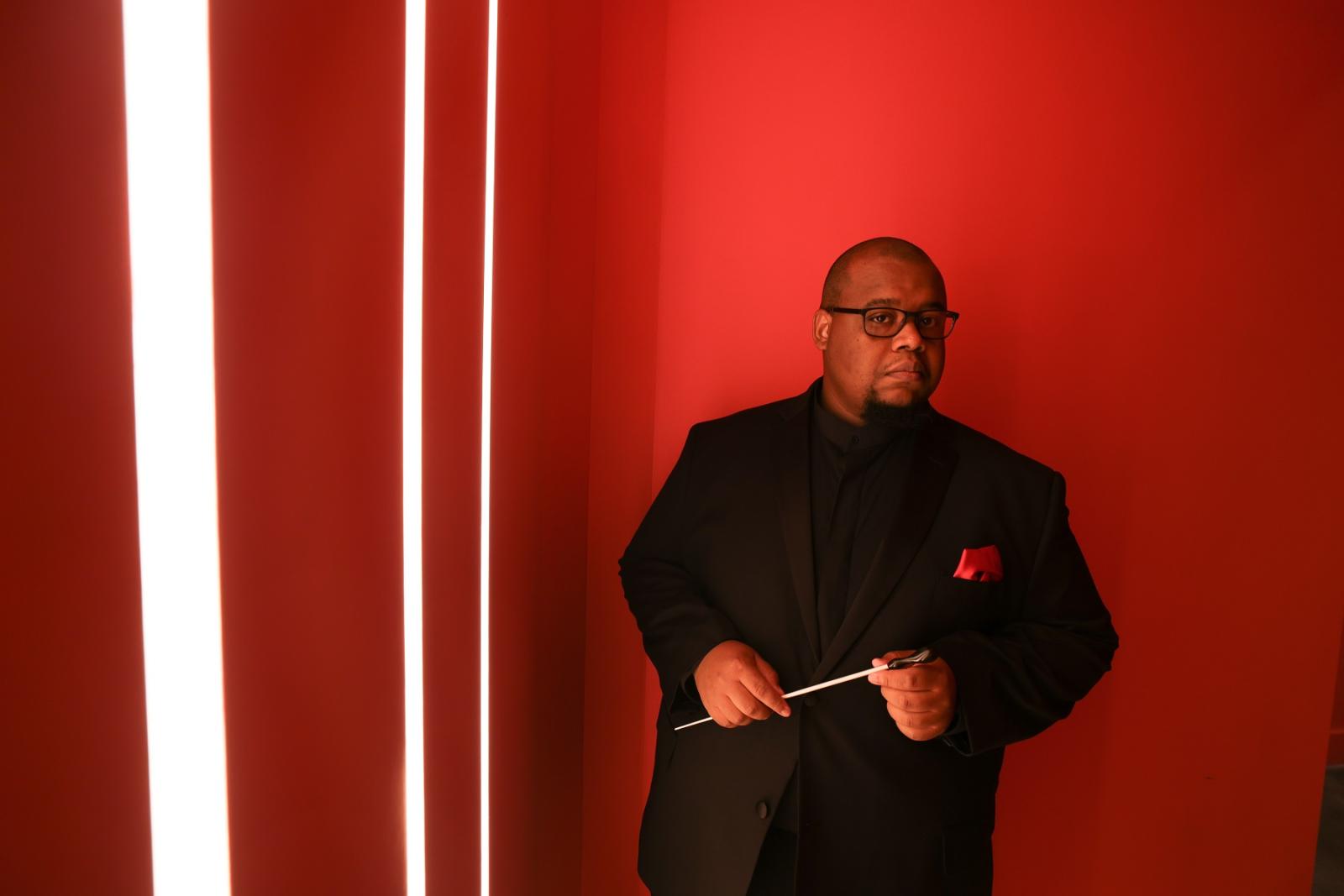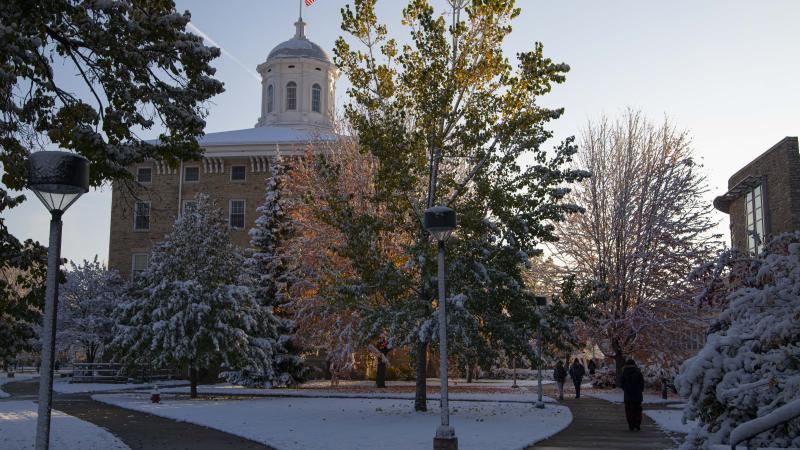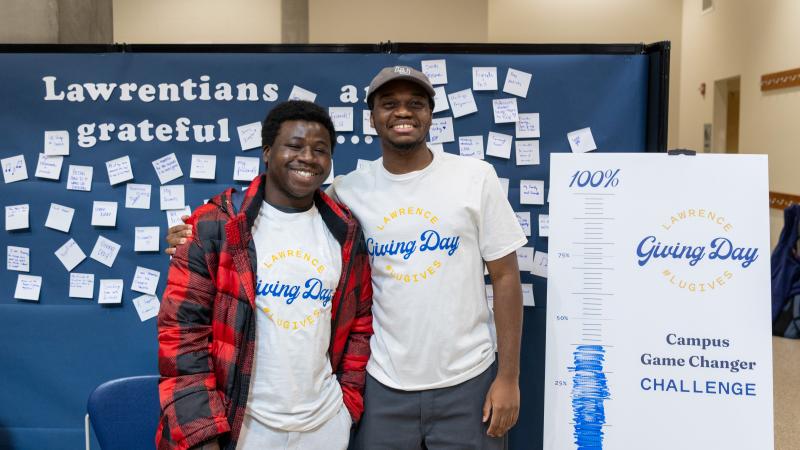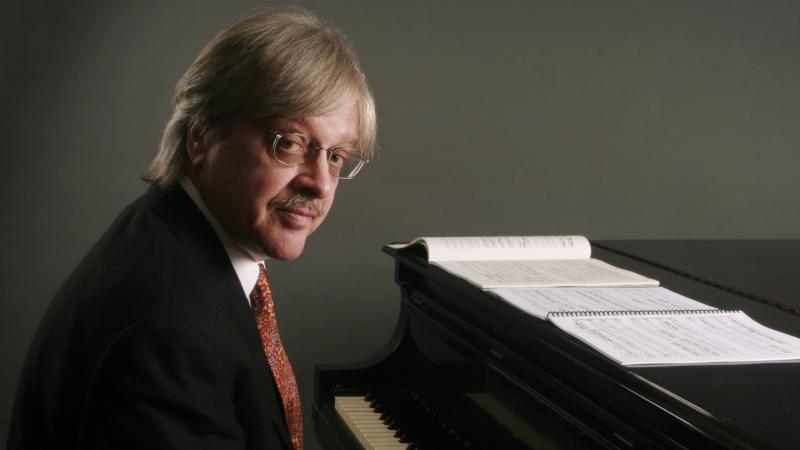This story appeared first in the spring/summer 2024 edition of Lawrence magazine. See the digital edition of the magazine here.
Rising composer Evan Williams ’10 doesn’t have to look far to find the foundation on which his blossoming music career is built.
“Most, if not all, of the successes in my professional life I can point back to Lawrence as being the starting place for that,” said Williams, a music theory and composition major when he graduated from Lawrence University in 2011.
He sees it as he prepares to have his harpsichord concerto, Dead White Man Music, performed by the London Philharmonic in January 2025.
He sees it in his teaching at the Berklee College of Music, where he teaches composition, conducting, and music technology.
He sees it in a multitude of collaborations, including his recent contributions to Preach Sister, Preach, the debut album of soprano Katherine Jolly, where his song cycle featuring the poetry of Emily Dickinson has drawn high praise.
He sees it in his doctorate from the College-Conservatory of Music at the University of Cincinnati, in fellowships from the Virginia Center for the Creative Arts, in his time as the inaugural African American Classical Roots Composer-in-Residence with the Detroit Symphony, and in his current role as the Steven R. Gerber Composer-in-Residence for the Chamber Orchestra of Philadelphia.
And he sees it in a current passion project—writing a piece for the Lawrence University Wind Ensemble that will be performed Nov. 20 as part of the celebration of the Lawrence Conservatory of Music’s 150th anniversary.
“Andy Mast (Lawrence’s associate dean of the Conservatory, Kimberly-Clark Professor of Music, and director of bands) called and asked if I’d write this piece,” Williams said. “He’s been a great mentor for me and a supporter of my work over the years.”
Mast is one of many mentors at Lawrence who have influenced Williams’ career. He points to Joanne Metcalf and Asha Srinivasan, both accomplished composers and members of the Conservatory faculty, among others.
“My training with Asha and Joanne in the Composition Department was crucial,” Williams said.
In 2017-18, Williams stepped into a temporary teaching role at Lawrence to cover for a sabbatical. And he spent a year as a recent graduate trustee on Lawrence’s Board of Trustees before having to bow out because of scheduling conflicts.
A “winding” journey
Williams arrived at Lawrence in 2006 knowing he wanted to pursue music but not quite sure where to focus his energies. He grew up in Matteson, Illinois, and planned to attend the University of Illinois before paying a visit to Lawrence and falling in love with the campus and its music programs. He initially majored in music education but switched to composition during his junior year. Through it all he performed frequently—he took trombone and voice lessons, took instruction in conducting, sang in choirs and operas, and performed in the Wind Ensemble, the Symphonic Band, and Symphony Orchestra. If there was music happening, Williams was there.
“My story at Lawrence is really a winding one,” he said. “I meandered a lot, and one of the things I love about Lawrence is they let me meander. They let me be unsure about what I wanted to do, and that helped shape the career I created. They really let me take the time to explore.”
Outside of the Conservatory, Williams embraced courses in government, history, and poetry, among others. He took a Latin class. Influences from all those experiences have found their way into his music—whether it is music focused on history or social justice or the exploration of languages.
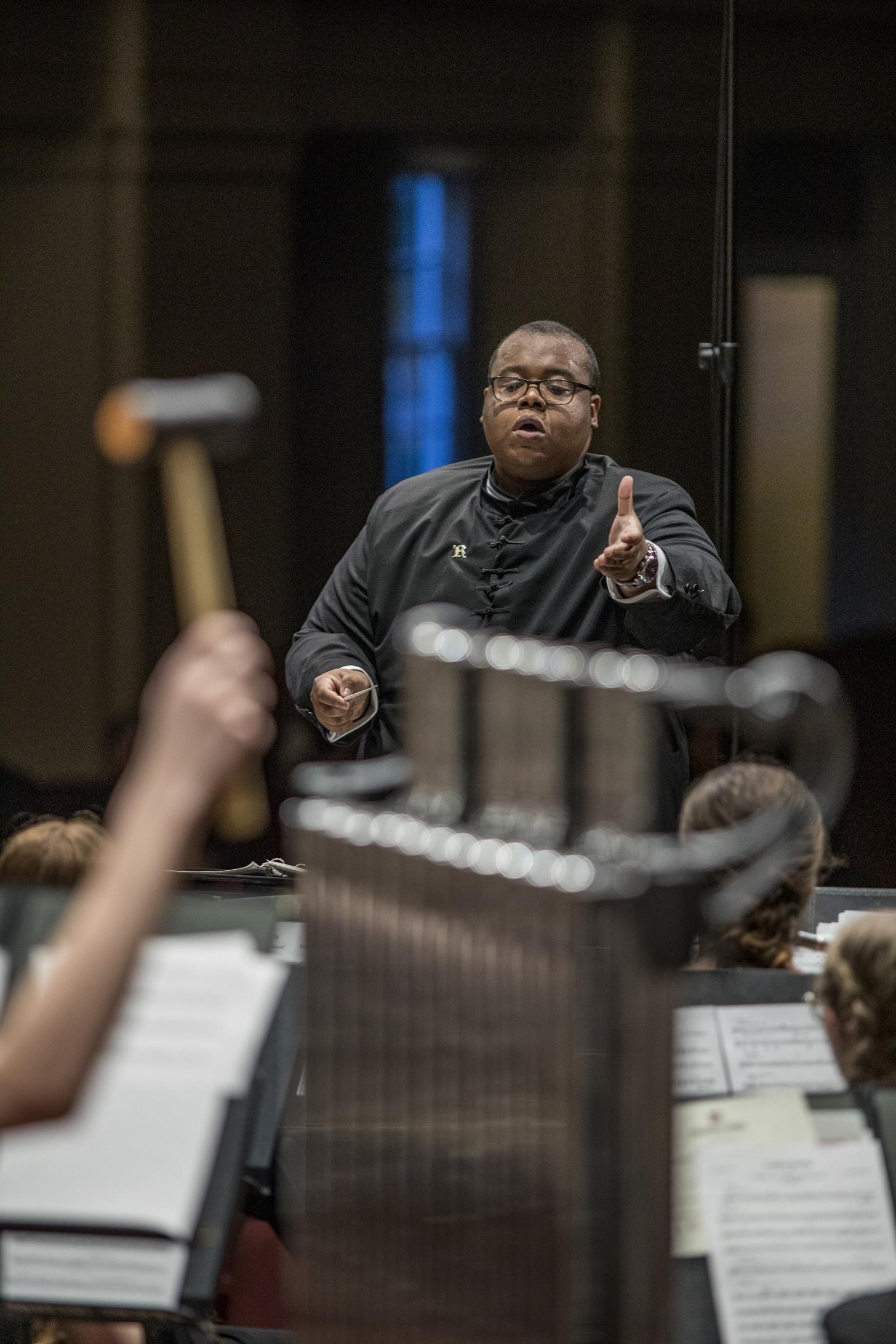
Evan Williams '10 first explored composition and conducting while an undergraduate at Lawrence. (Photo by Justin Fox Burks)
Mast had a front-row seat as Williams’ talents began to catch up with his many interests.
“He was a very good trombone player, but I always knew he was anxious to explore composition and conducting as well,” Mast said. “He took extra conducting lessons with me and conducted a piece with the Symphonic Band. … I also really admired what a musical omnivore he showed himself to be as an undergrad, and of course that continued throughout his other degrees and to this day. He was a brass player but showed interest in music for many different media. When I think of the prototypical Lawrence student who is curious, open, and multi-faceted, Evan is always one of the first examples I think of.”
It was during Williams’ junior year at Lawrence when composition came into clearer focus. He had been inspired in part by composer David Maslanka.
“I wasn’t sure there was a place for me in the composition world,” Williams said. “And then Andy Mast brought in David Maslanka as the composer-in-residence for the Wind Ensemble, and we played his A Child’s Garden of Dreams and his Symphony No. 8 and things like that, and I said, ‘Oh, this is it. This is the way forward.’ It had tonal elements and traditional elements and very romantic elements, but it also has a lot of dissonance; it’s inspired by minimalism and jazz and pop music. That was the first time I knew: I’m going to be a professional composer. I’m going to be a college professor.”
Integrate intellectual and musical virtuosity in a supportive, creative community that will empower you to find your musical path.
After graduating from Lawrence, Williams earned a DMA in composition with a cognate in orchestral conducting from the University of Cincinnati and a Masters of Music in composition from Bowling Green State University. He has been commissioned by notable performers and ensembles including the Cincinnati and Toledo Symphony Orchestras, Urban Playground Chamber Orchestra, Quince Ensemble, and the Chamber Orchestra of Philadelphia.
Thirteen years after walking across the Commencement stage on Main Hall Green, Williams is preparing for a trip to England to see his music performed for the first time by the iconic London Philharmonic. They will perform his Dead White Man Music, a harpsichord concerto with chamber orchestra that is in part a love letter to the classical music of Bach, Brahms, and Dowland, in part a celebration of jazz, soul, and gospel, and in part an internal grappling with the limited diversity within the works of the Western canon. The piece was honored in 2021 by The American Prize.
Before leaving for London, Williams will make a return to Lawrence to see his newest composition performed as part of the Conservatory’s anniversary celebration, a piece he said is “inspired by my time at Lawrence.”
The two events, nearly 4,000 miles apart, are connected via Williams’ winding, expansive musical journey, all nurtured during his undergraduate days at Lawrence.
“All I can say is a lot of things I didn’t know were going to be relevant in my life that I learned at Lawrence have become completely relevant to my life,” Williams said. “It all has informed my music. It all mattered in the end.”
